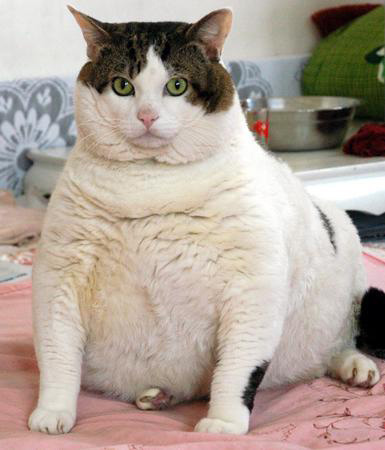Are you fighting the “Battle of the Bulge?” If you are you are not alone.
Results from the 2005-2006 National Health and Nutrition Examination Survey, using measured heights and weights, indicated that an estimated 32.7 percent of U.S. adults 20 years and older are overweight, 34.3 percent are obese and 5.9 percent are extremely obese.
In 1960 only 13.4 percent of the U.S. adult population was classified as obese. This dangerous trend continues and is causing havoc with our health and enjoyment of life. An even more alarming trend is the obesity rate with our children.
In a recent issue of the American Health Journal the authors conducted an analysis of 1000 Michigan sixth graders. The authors noted that in 1980 just 6.5 percent of U.S. children aged 6 to 11 years old were considered obese. That percentage rose to nearly 20 percent by 2008. The study found 15 percent of the participants were obese and almost all had poor eating habits.
So just what is “it” that makes us fat and how do we reverse the trend? This recent obesity epidemic can be attributed to us moving further away from our food sources, increasingly sedentary lifestyles, the advent of the automobile, occupations that require sitting instead of moving, and the ever increasing number of meals eaten out rather than prepared and eaten at home.
In a nutshell, environment and sociological factors combined with abundant and a relatively cheap food supply set the stage. When you factor in the body’s amazing capability for unlimited fat storage we are locked in a “perfect storm” of obesity.
How do we weather the storm and reach a safe harbor of being strong and healthy? First of all let’s stop all the negative stinking thinking. Fat is not your fault but it is your responsibility; you can control your behaviors to manage your genetics and environment. Cutting calories, by the way, is not the way to do it. Deprivation does not work. It’s sort of like holding your breath. Sooner or later you have to breathe.
Only 10% of the obese population has genetic challenges making it difficult to control weight gain, so we can’t blame our genes for making us fat. And this thinking about a “slow metabolism”- sorry not true.
You have to eat to live, you might as well learn how to eat and live well. Calorie counting just adds stress which increases cortisol production (a fat storing hormone) which causes increased belly fat. We cannot defeat our biology we have to make it work for us. Weight loss is dependent on a negative energy balance being achieved on a consistent basis. The problem is that our bodies adapt to the lower calorie intake and weight loss eventually slows and plateaus. We lose muscle mass as well as fat when we lose weight further slowing our metabolism. Long term success in weight loss and keeping it off requires the following:
• Eat less more often
• Do the right amount of cardiovascular exercise
• Protect and preserve the muscle – weight training
• Stick to a routine
Start by moving more; add resistance exercise to your routine. Take a look at your eating behaviors what do you eat, when do you eat, and how much do you eat. Plan your menu and follow it. Eat the foods you like, just eat less of them.
Follow the link to our website www.ThatGym Guy.com click on the Federal Hill Gazette tab located at the top of the page and you will be directed to download our FREE Food Rules Program with full descriptions and illustrations. Spend a little time getting yourself in shape and you will be ready to go full speed ahead!
Stay Strong and Healthy,
Peter Holmes,
That Gym Guy




Today, I went to the beach front with my children. I found
a sea shell and gave it to my 4 year old daughter and said “You can hear the ocean if you put this to your ear.” She placed the
shell to hher ear and screamed. There was a hermit crab inside and it pinched her ear.
She never wants to go back! LoL I know this is completely off topic butt
I had to tell someone!